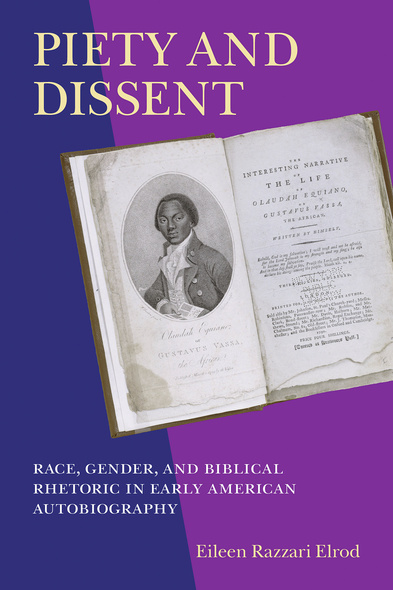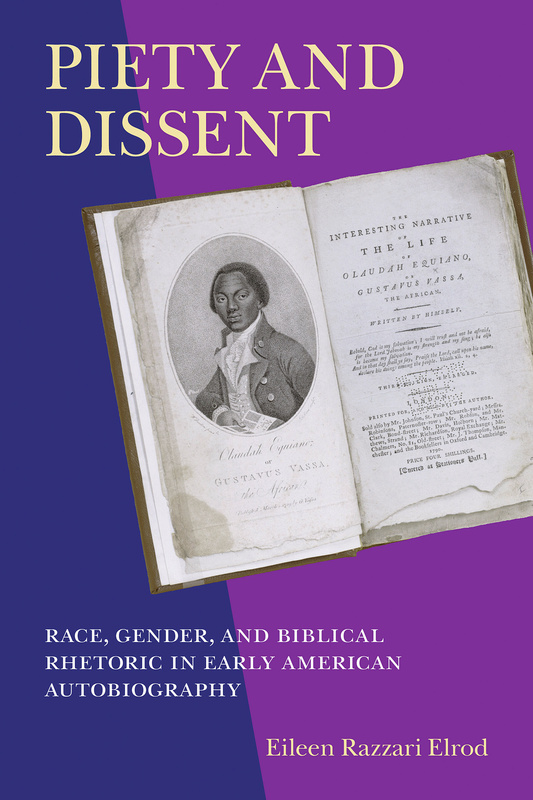Our shopping cart is currently down. To place an order, please contact our distributor, UTP Distribution, directly at utpbooks@utpress.utoronto.ca.
Piety and Dissent
Race, Gender, and Biblical Rhetoric in Early American Autobiography
University of Massachusetts Press
For pious converts to Christianity in late eighteenth- and early nineteenth-century New England, all reality was shaped by religious devotion and biblical text. It is therefore not surprising that earnest believers who found themselves marginalized by their race or sex relied on their faith to reconcile the tension between the spiritual experience of rebirth and the social ordeal of exclusion and injustice. In Piety and Dissent, Eileen Razzari Elrod examines the religious autobiographies of six early Americans who represented various sorts of marginality: John Marrant, Olaudah Equiano, and Jarena Lee, all of African or African American heritage; Samson Occom (Mohegan) and William Apess (Pequot); and Abigail Abbott Bailey, a white woman who was subjected to extreme domestic violence. Through close readings of these personal narratives, Elrod uncovers the complex rhetorical strategies employed by pious outsiders to challenge the particular kinds of oppression each experienced. She identifies recurrent ideals and images drawn from Scripture and Protestant tradition—parables of liberation, rage, justice, and opposition to authority—that allowed them to see resistance as a religious act and, more than that, imbued them with a sense of agency. What the life stories of these six individuals reveal, according to Elrod, is that conventional Christianity in early America was not the hegemonic force that church leaders at the time imagined, and that many people since have believed it to be. Nor was there a clear distinction between personal piety and religious, social, and political resistance. To understand fully the role of religion in the early period of American letters, we must rethink some of our most fundamental assumptions about the function of Christian faith in the context of individual lives.
This book accomplishes much in short compass. . . . One of Elrod's goals is to return an understanding of religion to the center of scholarship about early American texts, and she does that capably and imaginatively. . . . Spiritual autobiography remains one of the most 'teachable' genres in early American literature, and Elrod's book will extend how we conceive and follow through on such instruction.'—Philip F. Gura, author of Jonathan Edwards: America's Evangelical
'That Elrod recognizes that these blacks, Indians, and women accepted, even sought, the fullness of an Anglo-American Protestantism while standing as critics of it further recommends her work, for their stories run against the historians' commonplace that such outsiders had no place within that religious framework. . . . (Elrod's) reasoned and respectful reading of these texts should encourage scholars to consider how and why, in an American context of proliferating religious choices, 'outsiders,' like those Elrod discovers, chose to claim Anglo-American Protestantism for themselves'—Church History
'Piety and Dissent is a valuable contribution in the broader scholarly conversation seeking to recover religion as an essential category of analysis alongside race, class, and gender.'—Journal of American Ethnic History
Eileen Razzari Elrod is associate professor of English at Santa Clara University.






